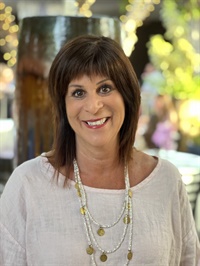CC23 Panel 02 - When Infidelity is Traumatic - Martha Kauppi, MS, LMFT; Ellyn Bader, PhD; Lori Weisman, MA, LMHC; Cristine Toel, LPC
- Average Rating:
- Not yet rated
- Topic Areas:
- Keynotes | Trauma | Infidelity | Couples Therapy
- Categories:
- Couples Conference | Couples Conference 2023 | Pioneers in Couples and Family Therapy
- Faculty:
- Martha Kauppi, MS MFT | Ellyn Bader, PhD | Lori Weisman, MA | Cristine Toel, LPC
- Duration:
- 59:32
- Format:
- Audio Only
- Original Program Date:
- May 07, 2023
- License:
- Never Expires.
Description
Description: A panel examining therapeutic approaches to infidelity, showcasing effective interventions through video clips. The experts discussed strategies for moving couples from crisis to healing, emphasizing individual work, self-reflection, and collaborative treatment. Discussion highlighted the importance of addressing internal emotional processes, accountability, and supporting both partners through complex relationship challenges.
Syllabus Description: Infidelity erodes trust and can destroy relationships. Traumatic effects can be addressed.
Learning Objectives:
- Describe Infidelity
- Describe a method of working with a couple when infidelity is a presenting complaint.
Credits
Handouts
| Timestamped Transcript (1 MB) | 26 Pages | Available after Purchase |
| Ericksonian Learning Snapshot (254.7 KB) | 2 Pages | Available after Purchase |
Faculty

Martha Kauppi, MS MFT Related Seminars and Products
Martha Kauppi believes that relationships (with yourself, your family, your partner, your culture, your community) form the context for life and provide some of the richest material for both joy and struggle. Improving any of our relationships improves every aspect of life. She is skilled in relationship, family, and couple counselor, and love working with people who are addressing family relationship challenges, improving couple communication, or exploring improved intimate connection.

Ellyn Bader, PhD Related Seminars and Products
Ellyn Bader, PhD, is a founder and director of The Couples Institute in Menlo Park, California. As a clinical psychologist, workshop leader, author, and speaker, she is dedicated to helping couples create extraordinary relationships. Over the past 30 years she has trained therapists in couples therapy throughout the United States as well as Europe, Asia, South America, and Australia. She served as a Clinical Faculty in Stanford University School of Medicine for 8 years.

Cristine Toel, LPC Related Seminars and Products
Cristine Toel is a Licensed Professional Counselor at Psychological Counseling Services, Ltd. She is an EMDRIA Certified EMDR therapist, and an EMDRIA Approved Consultant. She is also a member of the ongoing Psychodrama Group at the Arizona Psychodrama Institute, and a specialist in Problematic Sexual Behavior (SASH). She works with adults, adolescents, couples, and families and specializes in cases of complex trauma, PTSD, anxiety, depression, problematic sexual behavior, betrayal, crisis and difficult life transitions, adult children of alcoholics (and other family of origin dysfunction), and cases involving divorce, remarriage, and blended family concerns.
PCS offers a weekly intensive program (30 hours of individual therapy and 25 hours of group therapy), which provides a therapeutic team approach for clients looking to mend difficult trauma, crisis, and addiction. Cristine finds it fulfilling to work with intensive clients, because it allows her to pursue and help heal deep, historic traumas that are sometimes challenging to address in weekly therapy.
Cristine has a nurturing, down-to-earth approach, and she is passionate about healing trauma, recognizing strengths, and developing an “I-Can” approach to living. She encourages her clients to trust their ability to handle struggles in life, including conflict, stress, anxiety, depression, boredom, and overall messiness, by adopting healthy coping rather than maladaptive habits, addictions, and escapes. As a result, she has seen many clients experience significant shifts and begin to engage in deeper intimate relationships with the people who love them.



